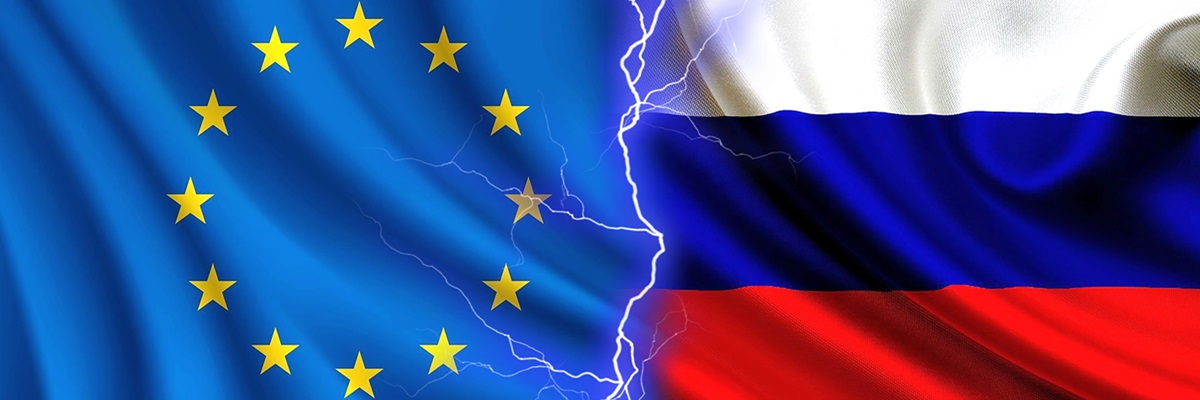Defense & Security
The new order will be with safeguards

Image Source : Shutterstock
Subscribe to our weekly newsletters for free
If you want to subscribe to World & New World Newsletter, please enter
your e-mail
Defense & Security

Image Source : Shutterstock
First Published in: Jul.22,2024
Sep.09, 2024
It is generally accepted that an international order is not the result of specific agreements, but the product of a common understanding of what can and cannot be done in relations between states. It is also generally accepted that all significant powers need to have relatively common ideas about why they recognize each other's right to exist and do not interfere in their internal affairs. In particular, the late Henry Kissinger wrote a lot about this, whose ideas were considered the standard of geostrategic thinking not only in the West, but also in our country. However, the coming times, apparently, will require a more creative approach to established views on how states can guarantee each other respect for basic interests and values. After all, it is the attack on them that always becomes the cause of conflict, as we are convinced by the example of the current military-political confrontation in Europe. In his speech at the UN Security Council, Russian Foreign Minister Sergey Lavrov emphasized that any agreement with the West on European security will have to contain "safeguards against unscrupulous interpretations." It is currently quite difficult to imagine what such safety catch might look like in physical terms, although the diplomats probably already have ideas on this topic. It can be guessed what the nature of such mechanisms should be. It is clear that the mechanisms should be aimed against the negative manifestations of the West's behavior. First, it is the West's desire to constantly create threats to others, as a central part of the global diplomatic game. Therefore, it is necessary to limit the physical ability to create such threats. The safety catches in this case are technical ways to ensure a situation where a state (or bloc) cannot change its behavior to hostile or take advantage of the omission in its selfish interests. Precisely cannot. Because "does not want" no longer works after, for example, Finland joined NATO. And the alliance itself simply trampled all the formal and informal principles on which they tried to build a security system in Europe after the Cold War. We see that not a single concluded then agreement works. The United States unilaterally withdrew from the main treaties on which the "rigid" framework of European security was based. NATO expansion to the east, in fact - the expansion of the territorial base of the American military presence in Europe - made all agreements in the field of conventional weapons meaningless. So, to come up with a new legal basis for peace in Europe is not a trivial task at all. And it remains to rely on the recognized skill of Russian diplomacy. A universal order that would suit everyone is unlikely now. It has always been relative before. However, in the century before last, there was at least a general idea among the leading powers about the principles on which the internal order in each of them should be based. Now it is difficult to think that Western countries will agree to recognize the right of Russia, China or other states to determine their own lives. First, any security order will inevitably be technical in nature, and not based on a common understanding of challenges and threats. This means that it will have little room for principles and a lot for specific parameters of how the West will not be able to threaten Russia's core interests. Russia's proposals at the end of 2021 already contained a fairly large number of such features of a functioning European security system. Apparently, they will have to return to them after the United States is ready to sit down at the table of serious negotiations. Much here will depend on how soon the understanding of the impossibility of continuing to pursue an irresponsible policy prevails in America itself. At least now, anxiety for the future of their country is heard in the statements of some American politicians. We will see to what extent their understanding that the reasons for the US difficulties relate to the internal situation can be translated into concrete decisions. Secondly, it is difficult to imagine that there will be a place for such a concept as trust in future agreements. Unfortunately, it is not available to all political systems without exception. We ourselves see how the Americans openly declare that any new administration can easily revise the agreements reached by the previous one. Continuity of policy is disappearing in the West – and this has always been the basis of stable diplomatic relations. Moreover, the modern world is extremely diverse. Trust is possible – as in the relations between Russia and China – in situations where both sides share a common understanding of the main threats. Russia and the West cannot have such a common understanding now. Simply because the entire surrounding world poses a threat to the United States and its satellites. And until Westerners can adapt to the new international reality, it will be quite difficult to take their words seriously. Therefore, trust in matters of European security should be based on the physical impossibility for the West to violate any agreements. And no one in Russia doubts that the desire to do so will periodically arise there. Thirdly, the legal basis for European security will most likely become broader. The situation in Europe has long ceased to be the business of the Europeans themselves. Especially since the positions of two powers with the largest nuclear weapons stockpiles in the world – Russia and the United States – directly touch here. Their indirect proximity is a concern for the entire world and has little to do with the affairs of Europe. It is no coincidence that the most adequate proposals for ending the armed confrontation in Ukraine are currently coming from China, India, Brazil, or even African countries. The Europeans, in turn, are not prepared to offer anything at all that would reflect objective reality. They are simply going with the flow. In other words, security in Europe is simultaneously a local and global problem. The broader international community itself must guarantee how the West will comply with its probable obligations. And finally, the technical aspects themselves could include things that have not been widely used in international practice before. For example, the complete or almost complete demilitarization of individual territories and entire states. Unfortunately, the practice of the last 30 years has shown that not all states can bear such a heavy burden as the right to independently determine the parameters of their defense policy. The Baltic republics of the former USSR, Finland or the same unfortunate Ukraine could live quite happily if their political elites were not tempted to use the conflict with Russia to retain power despite any economic difficulties. Then they would probably have to work better on internal development, fit into the world economy, and not turn into centers of instability. In other words, the countries that cannot play an independent role in determining regional security should be relieved of the physical ability to create problems for it. Perhaps such an experience will become more widespread in the future. At least because the risk of turning sovereign states into springboards for confrontation between great powers is too great. The main technical and legal parameters of the European security system have yet to be invented by diplomats and agreed upon by politicians. However, it is already clear from bitter experience that it is no longer possible to leave the situation here in a state of uncertainty – it is too threatening to universal peace and survival.
First published in :

Doctor of Political Sciences, Scientific Director of the Center for Comprehensive Economic Studies of the National Research University Higher School of Economics, Program Director of the Valdai International Discussion Club, Member of the Russian International Affairs Council
Unlock articles by signing up or logging in.
Become a member for unrestricted reading!